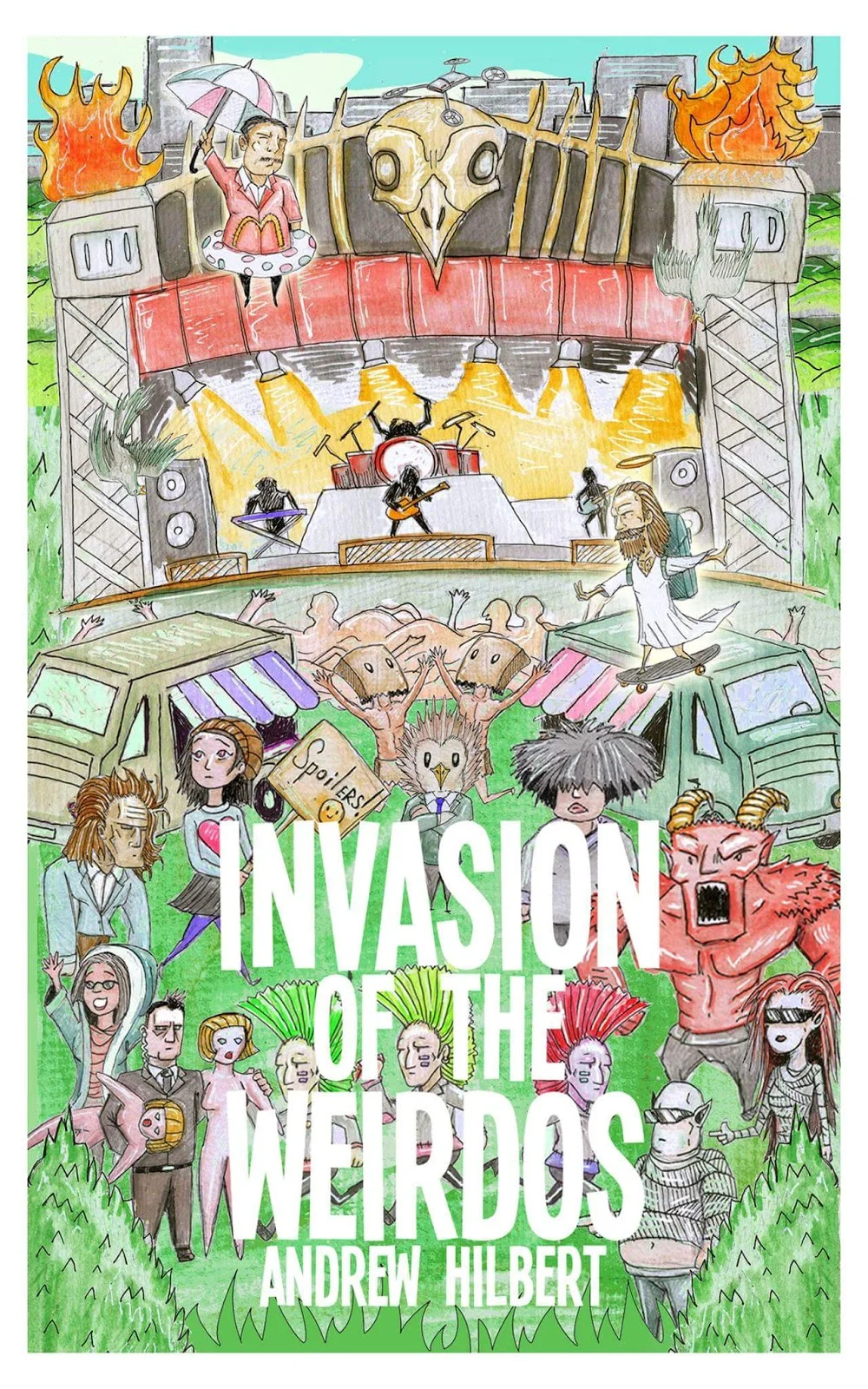Book Review : Scott McClanahan - The Sarah Book (2017)
Pre-Order THE SARAH BOOK here (will be released on June 20)
Scott McClanahan's divorce journal The Sarah Book might, at first glance, seem like another annoying postmodern novel featuring an entitled male protagonist pissing his life away for two hundred pages because he doesn't want to become an adult. Because there are a lot of those out there. It's not quite like that, but nothing about The Sarah Book is quite like anything you've read before: it's semi-autobiographical, written by an indie literature legend and it's been curiously released twice in three years. It's also quite excellent. The Sarah Book is indeed very much a postmodern novel featuring a male character pissing his life away, but this one is not the protagonist of his own story.
So, I first thought The Sarah Book was about Sarah Connor and it would turn into a time machine back to 1992 if I made it passed page 20, but it ended up being ever better than that. The book is the semi-fictional journal of Scott McClanahan himself, chronicling his divorce with his first wife Sarah Sanders. His account contains both very conventional moments (first kiss, first date, first fight, etc.) and unconventional ones where he seldom breaks the fourth wall in order to give better context. Perhaps the most interesting aspect of The Sarah Book is how McClanahan keeps writing himself in and out of it. There are several chapters dedicated to important moments in Sarah's life that barely feature him. What makes The Sarah Book much better than other contemporary breakup novels is that it's a book about her. McClanahan keeps writing himself in and out, but Sarah is on every page, even when she's not.
That was a weird thing to say, but bear with me.
The Sarah Book is, undeniably, a postmodern novel. It's a series of fragmented and loosely-related memories; uses metafiction and fourth wall breaks; irony and cynicism, it's a very dynamic example of what it can be. The book is driven by an earnest idea, though, which is not postmodern at all: becoming the villain of your own life. Sarah Sanders is the protagonist of the book and Scott McClanahan is the antagonist who happens to be narrating it. And it's driven by earnest emotions too. McClanahan obviously loved Sarah and deeply cared for her and The Sarah Book is as much her nightmare and it is his. What I meant by Sarah being on every page of the book even when she's not is that her absence is always being painfully felt. Everything in The Sarah Book stems from Sarah's decisions. She's in control to a point Scott McClanahan never judges and even tries to rationalize her choices in chapters where he paints himself as this impossible domestic terror who constantly endangers everyone.
If The Sarah Book uses postmodern narrative techniques to make earnest points, doesn't that make it metamodernism?
Perhaps, but I don't believe making a literary statement was the point here. Another part of what makes The Sarah Book is that it reads like a tribute and an apology letter from McClanahan to his first wife. While he clearly takes responsibility for what happened, the novel paints a more complicated portrait. Sarah and Scott were two kids full of life who loved each other long enough to become adults and turn into different people. Sarah became an overworked nurse while Scott struggled with inner demons and could barely keep afloat with the responsibilities that his new domestic life demanded from him. Sarah and Scott tragically drifted apart in a one-size-fits-all existence every adult is suppose to accept and appreciate, which I believe was the real villain of The Sarah Book. It ultimately is a deconstruction of the happily-ever-after, hence it should qualify as postmodernism. See what I did here?
I know what you're thinking. Are there any Guns N' Roses reference in the book? There is one, but if you know Use Your Illusion II as well as I do, you know there's a greater level of intertextuality at play here. It's an album full of breakup songs that echo through The Sarah Book. Scott McClanahan wrote a powerful novel that will always be better understood by people that grew up in the nineties than everybody else. That seems weird but it's quite an achievement given that most similar novels are really just existential pity parties for people who are afraid of becoming responsible adults. The Sarah Book draws inspiration from real life events, yet sees the bigger picture and offers an unfiltered portrait of two kids growing in their own crooked direction. I loved it, thought it was tragic, beautiful and oddly intimate. If you want to read a postmodern breakup novel, read this one first.





